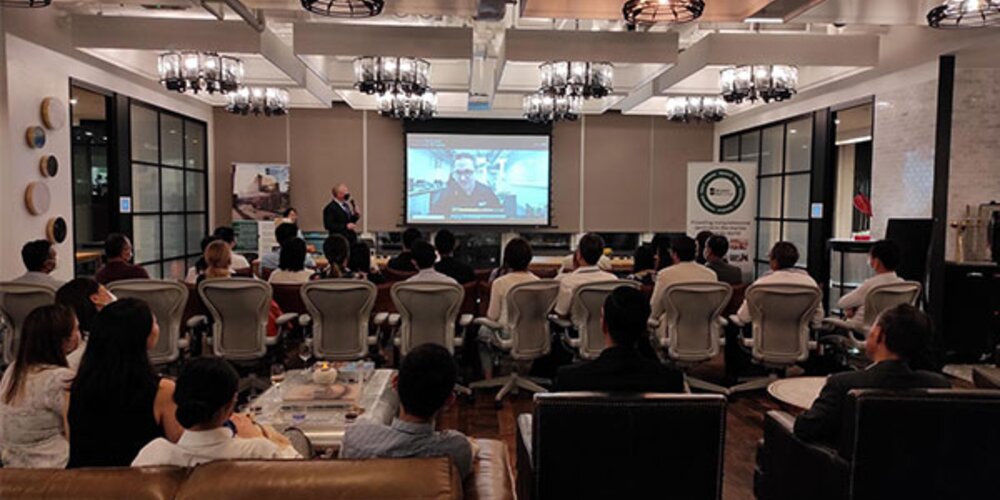Browse our services
Explore how Brookes Bell can help you
Find an expert
Meet our team, find and expert and connect
Contact us
Get in touch, we're here to help

Scientist, Dr Karwei So, was first to talk and outlined some of the ongoing problems the team has encountered with hazardous cargoes. Karwei talked about a recent experience of chemical cargoes with a fixed time period for safe shipping, where any delays during the voyage impacts on their safe carriage. These relatively safe chemicals undergo hazardous polymerization, generating sufficient heat to cause fires and even explosions.
Dr Tim Moss, Director of Science Asia was on next and explained the ramifications of one particular instance where a high-volume chemical was declared incorrectly, which in this case impacted on where the containers are placed on the ship – above or below deck. Tim showed how placing just one container underdeck led to overheating, a dangerous toxic gas release and an expensive decontamination.
Karwei returned to the rostrum and explained issues with a range of recent cases involving charcoal, which is increasingly in demand as a clean cooking fuel, but it can be a high-risk cargo. She highlighted the importance of knowing how it had been treated and stored before loading as well the tests that should be carried out on charcoal. Although many are safe, some sources of charcoal might still contain reactive chemicals which can lead to fire.
In both of her cases, Karwei emphasised that while the IMDG code provides some tests that can be conducted to assess the hazard and level of risk, further industry guidelines are available as the best practice, for example, outlining how such materials should be stored and for how long (in the case of polymerisation risk) and obtaining further assurances of the pre-shipment processes (in the case of charcoal).
Lastly, Graham Hill, Senior Master Mariner talked about the current container market, reflecting on the implications of container shortages and port delays around the world and the associated rise in freight rates, particularly for goods out of China. This has led some shippers to look at moving their boxes in other ways, including on bulk carriers. Graham discussed the implications this has for safety and the risk of subsequent container collapses. The presentation outlined the standard procedures that the owners of bulk carriers should follow to ensure that their vessels could load and carry containers safely.
Tim said: “It was wonderful to see so many people in person after such a long time. We shared some of our most topical findings from recent cases and highlighted just some of the ways the industry continues to be impacted by the global pandemic and the resulting worldwide supply-chain challenges, it certainly was an interesting and pertinent discussion. From the more social perspective, everyone seemed very happy to mingle and it was great to be mixing with our clients and the community again.”